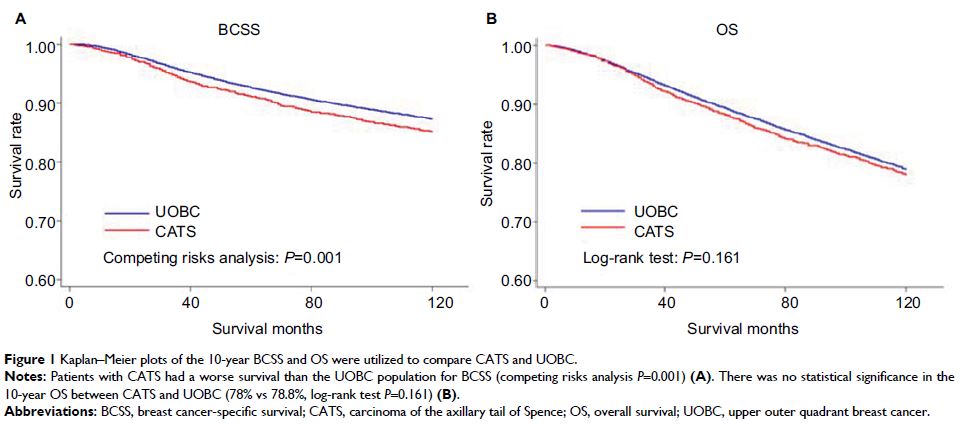9 0 6 7 6
论文已发表
注册即可获取德孚的最新动态
IF 收录期刊
- 2.6 Breast Cancer (Dove Med Press)
- 3.9 Clin Epidemiol
- 3.3 Cancer Manag Res
- 3.9 Infect Drug Resist
- 3.6 Clin Interv Aging
- 4.8 Drug Des Dev Ther
- 2.8 Int J Chronic Obstr
- 8.0 Int J Nanomed
- 2.3 Int J Women's Health
- 3.2 Neuropsych Dis Treat
- 4.0 OncoTargets Ther
- 2.2 Patient Prefer Adher
- 2.8 Ther Clin Risk Manag
- 2.7 J Pain Res
- 3.3 Diabet Metab Synd Ob
- 4.3 Psychol Res Behav Ma
- 3.4 Nat Sci Sleep
- 1.9 Pharmgenomics Pers Med
- 3.5 Risk Manag Healthc Policy
- 4.5 J Inflamm Res
- 2.3 Int J Gen Med
- 4.1 J Hepatocell Carcinoma
- 3.2 J Asthma Allergy
- 2.3 Clin Cosmet Investig Dermatol
- 3.3 J Multidiscip Healthc

与外上象限乳腺癌患者相比,腋尾癌患者的生存率下降:一项以人群为基础的研究
Authors Gou ZC, Liu XY, Xiao Y, Zhao S, Jiang YZ, Shao ZM
Received 11 February 2018
Accepted for publication 21 March 2018
Published 14 May 2018 Volume 2018:10 Pages 1133—1141
DOI https://doi.org/10.2147/CMAR.S165291
Checked for plagiarism Yes
Review by Single-blind
Peer reviewers approved by Dr Justinn Cochran
Peer reviewer comments 2
Editor who approved publication: Dr Leylah Drusbosky
Background: Carcinoma of the axillary tail of Spence (CATS) is a poorly
studied type of breast cancer. The clinicopathological characteristics and
prognostic features of CATS are unclear.
Methods: Using the Surveillance, Epidemiology, and End
Results database, we identified 149,026 patients diagnosed with upper outer
quadrant breast cancer (UOBC) (n=146,343) or CATS (n=2,683). The median
follow-up was 88 months. The primary and secondary outcomes were breast
cancer-specific survival (BCSS) and overall survival. The survival outcomes of
UOBC and CATS were compared using competing risks analysis, log-rank test, Cox
proportional hazards regression model, and propensity score matching method.
Multivariate logistic regression was utilized to present the relationship
between CATS and lymph node (LN) metastasis.
Results: CATS presented a higher grade, higher negative
hormone receptor rate, and more positive nodal metastasis. The 10-year BCSS
rate was worse for CATS than for UOBC (85.1% vs 87.3%, P =0.001). The multivariate Cox
analysis showed a higher hazard ratio (HR) for CATS over UOBC (BCSS: HR =1.20, P =0.001; overall survival: HR
=1.11, P =0.019). The difference in the
BCSS was also observed in a 1:1 matched cohort (BCSS P =0.019). A subgroup analysis
revealed the inferior outcomes of CATS in the metastatic LN subgroup and the
hormone receptor-negative subgroup. The multivariate logistic regression
indicated that CATS is an independent contributing factor to LN metastasis.
Conclusion: CATS had distinct clinicopathological
characteristics and was more likely associated with LN metastasis. Compared to UOBC,
CATS had adverse impacts on BCSS.
Keywords: carcinoma of
the axillary tail of Spence, upper outer quadrant breast cancer, breast
cancer-specific survival, lymph node metastasis
